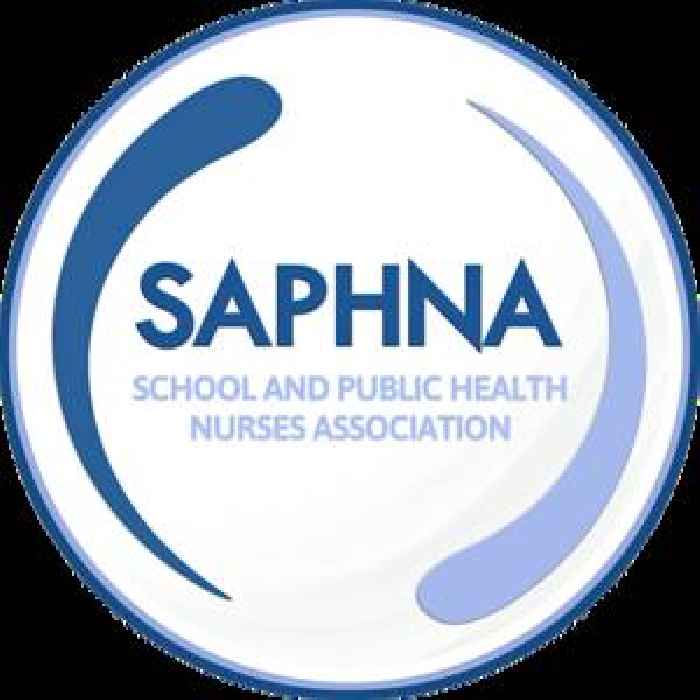Tuesday 17 September, 2024An academic from Robert Gordon University has thrown the spotlight on school nursing, within a report published by the Royal College of Nursing (RCN) and highlighted by the Queen’s Nursing Institute Scotland (QNIS) on Scotland’s nursing workforce.
Dr Elaine Allan, QNIS Fellow and lecturer on the Nursing MSc Advanced Practice degree at Robert Gordon University, says there is a need to raise the profile of school nursing as Scotland faces increasing complex needs of school aged children and young people, and gaps in mental health and wellbeing services.
Within the report, Raising the profile of school nursing in Scotland, published by the RCN and shared by the QNIS on Scotland’s nursing workforce, Dr Allan supports the group of RCN members representing all fields of practice, who offer 10 recommendations to address Scotland’s nursing workforce crisis.
These include a nursing retention strategy based on the findings of the Royal College of Nursing’s (RCN) third The Nursing Workforce in Scotland report
and a call to increase the number of school nurses, who provide specialist support to school aged children.
In England, The NHS Long Term Workforce Plan, published in June last year, pledged to increase training places for school nurses by 28%, aiming to double places to over 650 by 2031-32. There are calls from the School and Public Health Nurse Association (SAPHNA) to echo this investment in Scotland and to enhance the Scottish Government’s commitment to Scottish school nursing workforce made in 2018.
Dr Allan said: “The report is timely given the return of schools for the autumn semester, and the increasing needs of school aged children and young people specifically related to the gaps in mental health and wellbeing services, for example, which school nurses attempt to fill.
“In addition, the School and Public Health Nurse Association (SAPHNA) recently launched a campaign in partnership with QNI and the College of Medicine, and the QNIS highlighted findings of the recent Royal College of Nursing report on Scotland’s nursing workforce, and the need to raise the profile of school nursing.
“School Nurses are specialist community public health nurses, who play a crucial role in promoting the health and wellbeing of children and young people. They serve an important role in the primary health care team, providing a link between education settings, home and the community. It is vital that the school nursing profession collectively find a way to raise their profile to improve understanding of the value of the School Nurse role which is underpinned by fa child rights-based approach to delivering services to children and young people.”
Sharon White, Chief Executive Officer of the School and Public Health Nurses Association (SAPHNA), said: “As highlighted in Dr Allan’s report and other leading reports, the health and wellbeing needs of our children are escalating and becoming more complex long waiting lists for treatments such as dental care, child and adolescent mental health services etc coupled with the impact of the wider determinants of health, particularly poverty, are giving rise to distressed, unhealthy and unhappy children.
“Prevention and an upstream model is a critical part of the answer and proven to work! Urgent reinvestment in public health school nursing is a must if we are to begin to stem the tide. I’d encourage people to join us in our ask for a #ASchoolNurseinEverySchool.”
Mum of two, Shona Gray from Aberdeenshire, has just completed RGU’s Nursing MSc Advanced Practice and a PGDip qualification in school nursing. She’s now a trainee specialist school nurse for NHS Grampian and is working in schools in Bucksburn, Hazlehead and Northfield.
Shona returned to study after Covid, having previously worked as business support for and oil and gas company. She says returning to study to pursue a career in nursing is one of the best decisions she has ever made, despite the challenges of balancing study with a busy homelife, which meant she often missed out on family time, including watching her boys’ football matches.
Shona said: “The support received from RGU has allowed me to grow as a practitioner and empowered me to be the best version of myself, allowing me to advocate and promote the rights of children and young people, delivering early intervention and ensuring children and young people reach their full potential.
“School nurses focus on early intervention and prevention to ensure there are no health and social inequalities that may prevent children and young people reaching their full potential. We work as part of the multidisciplinary team around the child, supporting their health and wellbeing. This helps prevent Adverse Childhood Experiences, reduce health and social inequalities via a focused and targeted strength based, trauma informed approach, that respects the rights of the child.
“An increase in school nurse recruitment as suggested by SAPHNA’s ‘A school nurse for every school’ campaign, would allow the school nursing service to deliver an early intervention service to its fullest. Unfortunately, at times, due to increasing service pressures, it can feel like we are pulling children out of the river of inequality.”
The School and Public Health Nurses Association (SAPHNA) is encouraging people to sign their petition, #ASchoolNurseinEverySchool and has just launched a survey, “The Forgotten Frontline: Public Health School Nursing,
to unveil the realities of School & Public Health Nursing in the UK.
Distributed by https://pressat.co.uk/
RGU academic backs calls for a ‘school nurse for every school’
Pressat
0 shares
3 views


